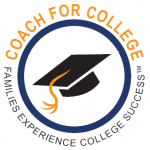Unlock Financial Strategies Stay Out of Debt
Examine Planning Categories as a Great Strategic Approach

How High Will College Costs Go?
Plan Categories can help you find money or reduce costs when devising a plan of action to reduce the out-of-pocket cost of College without relying on loans.
We are not speaking about “investment plans” rather designing micro college plans in money saving categorical planning areas – 13 total. Here are five.
- Academic
- Asset
- Household
- Income
- Tax Scholarships
Academic Strategy
- Increase the student’s SAT/ACT test scores through test prep courses.
- Take as many honors or advanced courses as possible.
- Achieve good grades that can result in grants and scholarships.
Asset Strategy
- Pay down personal debt with an assessable asset such as savings.
- Shift income generating assets to growth assets during college years.
- Inquire whether target colleges assess annuities and cash value life insurance.
Household Strategy
- Establish a small business for a non-working spouse, structure planning advantages.
- Structure a divorce agreement to give the custodial parent more assets and less income.
- Do EFC calculations and determine possible asset / liability restructuring before senior year.
Income Strategy
- Shift income to the child using a “tax capacity” concept, all families can qualify.
- Hire the child (remember household strategy # 1) and write off a portion or all of their auto expense, child must claim income but no tax will be due if properly structured and employing parent receives tax deduction.
- Gift appreciable assets to the child or grandchild.
Tax Scholarships Strategy
- Examine the American Opportunity Tax credit, if family income qualifies, if not there are alternative strategies allowing the student to use the credit
- Consider re-financing your home to increase your interest deduction and possibly use the equity to pay for college rather than income producing assets since the equity in a home has a zero rate of return.
- Time the repayment of student loan interest to maximize deductions when possible.
College Saving Opportunities When You Pay for College
Most Families Borrow Money Because of Inadequate Cash Flow
Learn strategies, secrets, and tips for allowing your children to go to the college that you think you might not be able to afford. We can answer these questions?
- How to Pay for College When You Do Not Qualify for Financial Aid?
- How to Use Personality Testing Major Selection that Qualifies the Colleges Your Family Should Consider?
- How to Achieve the Necessary Cash Flow to Help Pay For College with Lesser Debt, if any?
- How to Unravel Tax Scholarships?
- How to Reduce Your Out-of-Pocket Expenses and Use Other Peoples’ Money?
We use specific financial calculators and planning software that address the answers to these questions using your family’s financial situation.
Realize new ways to meet the high cost of going to college.
Paying for College can be an overwhelming and disastrous when making the wrong financial choices.
Even more important, making choices from new opportunities you learn that can help you pay for college without affecting your lifestyle.
Four Action Steps to Pay for College
We can help you accomplish the following achievable results when you pay for college;
- Select the right College at the right “net cost”
- “Financial Need” Families Monitor your EFC number
- Utilize College Admission Strategies That Make Paying for College More Affordable
- Lower Your Income Taxes
- Saving On College Helps Fund Your Retirement

- Eliminate Wealth Transfers Increase Your Cash Flow
Jim Kuhner, Coach For College has been in college planning since 2006 when he passed NICCP college planning certification exams.
JimKuhner

 How to
How to